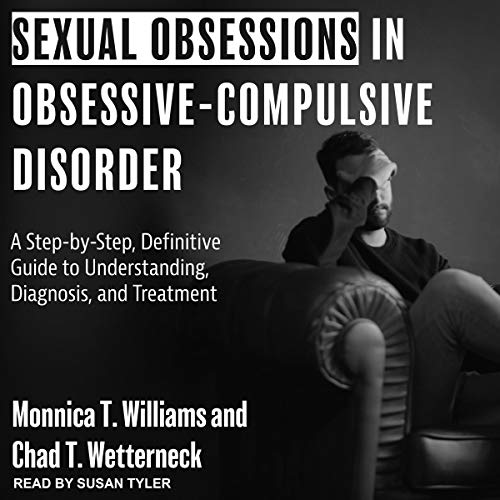Obsessive-Compulsive Disorder
Taboo Thoughts
Dr. Williams and colleagues developed the first treatment manual specifically addressing sexual symptoms in OCD, providing a comprehensive road-map for clinicians navigating these challenging cases. Available in paperback, Kindle, and audio.

OCD & Racism
Racism makes OCD worse in people of color, as they are more likely to be misdiagnosed and undertreated for OCD when symptoms revolve around experiences of race and racism. As a result, racial discrimination can create confusing symptoms that challenge clinicians. OCD can also cause non-racialized suffers to have constant fears of being a racist or saying something inappropriate to a person of color.


Obsessive-Compulsive Disorder is a Mental Health Disparity Condition
Obsessive-compulsive disorder (OCD) is a debilitating psychological disorder defined by the presence of persistent, intrusive obsessions, and compulsions enacted to reduce distress. It has been considered a leading cause of disability worldwide.
- Stigmatized Symptom Presentations
- Access to Care
- Treatment Through a Social Justice Lens
- Innovative Approaches to Improve Treatment
Our lab is dedicated to advancing the understanding and treatment of obsessive-compulsive disorder (OCD), with a focus on addressing complex and under-researched symptom presentations. We have developed clinical tools to better assess extreme worries and fears around morality and sexual symptoms in OCD. This includes pioneering research into sexual orientation fears, examining how homophobia, fears related to LGBTQ identities, and the emotion of disgust intersect. Dr. Williams also authored the first treatment manual specifically addressing sexual symptoms in OCD, providing a comprehensive resource for clinicians navigating these challenging cases.
Our work emphasizes the importance of delivering OCD treatment through a social justice lens, recognizing the unique cultural and societal factors that influence mental health. Using data from the National Survey of American Life (NSAL), we have extensively studied the mental health experiences of Black Americans, shedding light on cultural nuances of OCD presentation and treatment in this population. By integrating cultural competencies into evidence-based therapies, we aim to ensure that treatment approaches are accessible, effective, and respectful across race, ethnicity, and culture.
In addition to refining traditional therapies, our lab is pioneering cutting-edge treatments for OCD, including ketamine-assisted psychotherapy (KAP). These innovative approaches hold promise for individuals who have not responded to conventional treatments, particularly those with severe or treatment-resistant symptoms. Through these efforts, our lab is committed to breaking new ground in OCD research and practice, ensuring that care is both evidence-based and inclusive.
